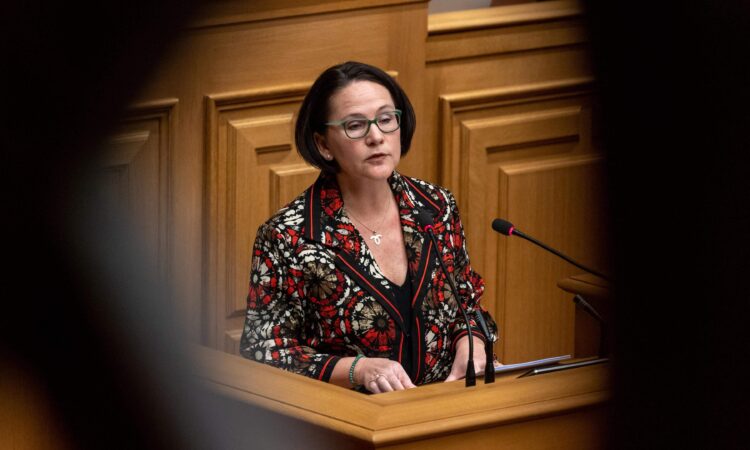
Ukraine war
Grand Duchy’s financial institutions now holding €6.2bn, Backes says
Russian assets frozen in Luxembourg banks, investment funds and other vehicles increased by 44% in the past 15 months as the notorious Wagner military company and more than 500 other organisations and individuals were targeted by EU sanctions.
Luxembourg financial institutions have now frozen €6.2 billion held by persons or entities targeted by expanding rounds of sanctions imposed after Moscow’s full-scale invasion of Ukraine, the Finance Ministry said this week. That represents about one-fifth of the €30 billion of Russian private assets frozen across the EU.
“The ambitious sanctions regime that the EU imposed on Russia has been rigorously applied in Luxembourg,” Finance Minister Yuriko Backes said in a statement.
Almost €4.3 billion in bank deposits, securities and other assets were held in Luxembourg in June 2022. The following month, the government said it had frozen another €210 million in assets owned by sanctioned Russians stowed in the high-security, tax-advantaged freeport at Luxembourg’s airport that can store works of art, fine wines, vintage cars and precious metals.
Of Luxembourg’s frozen assets at that time, about €3 billion was held by the Russian National Securities Depositary at Luxembourg’s Clearstream, one of the world’s primary firms ensuring custody and payments for security trades, Backes said.
The EU has imposed 11 rounds of sanctions packages against Russia and people accused of supporting the invasion launched in February 2022. The sanctions now affect almost 1,800 individuals and entities, from military officers and museum directors responsible for looting Ukraine’s cultural heritage to the Wagner Group, the Russian mercenary organisation accused of committing war crimes.
The European Commission was expected to begin outlining plans this week to impose a windfall tax on profits generated by more than €200 billion of Russian central bank assets frozen inside the EU. The proposal to use the roughly €3 billion in generated tax revenue to help Ukraine’s reconstruction was expected to be described to representatives from Luxembourg and other member states after initial meetings with officials from Spain, Belgium, Italy, France and Germany on Thursday, Bloomberg reported.






